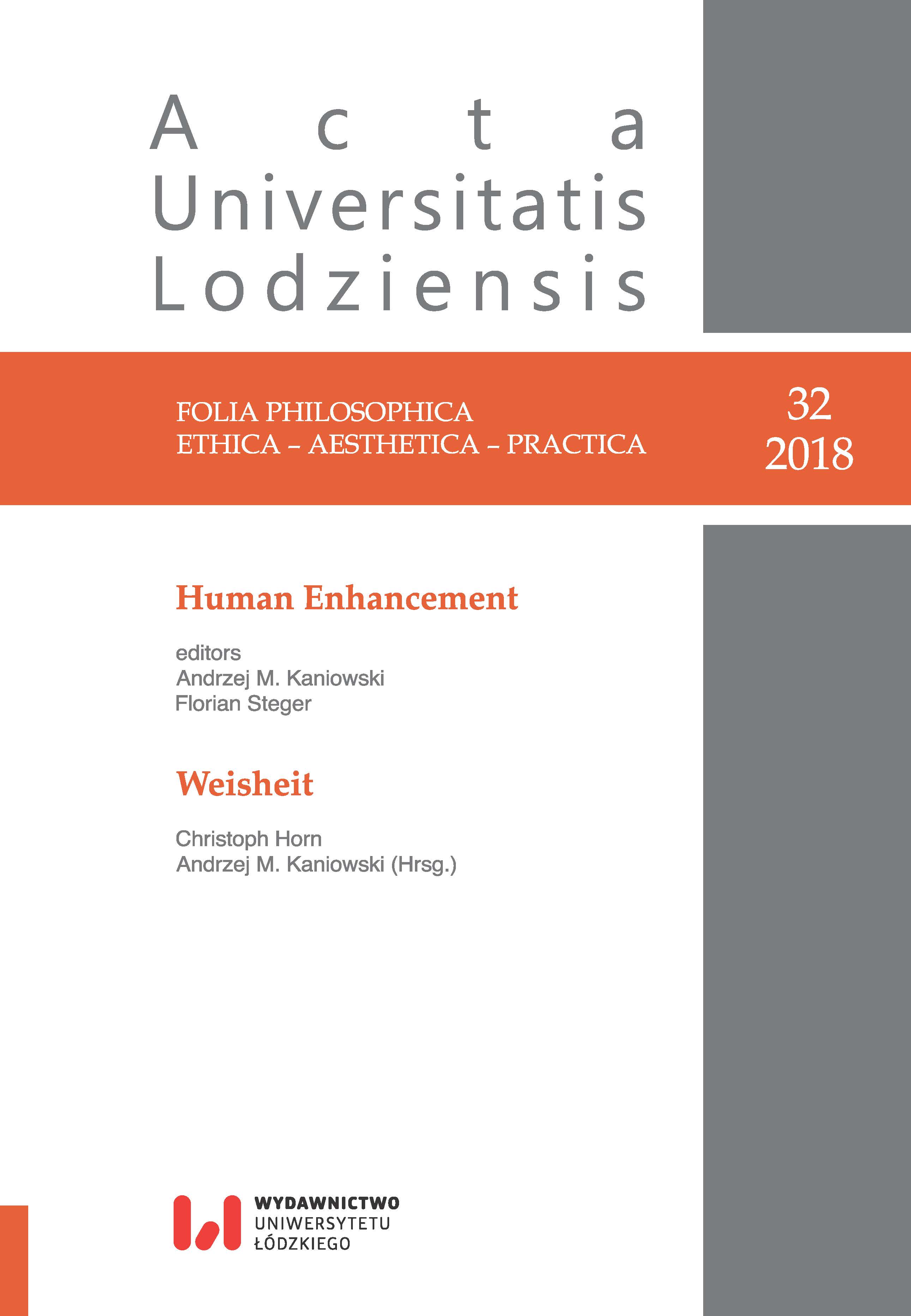Pathei mathos. Schopenhauer’s doctrine of wisdom and the ancient Greek Sophia
DOI:
https://doi.org/10.18778/0208-6107.32.09Keywords:
Schopenhauer, wisdom, will, knowledge, pain, sufferingAbstract
In the face of growing de-objectification and depersonalization, which in the realm of knowledge have asserted themselves through the unconditional claim of science to objectivity, it is advisable to remember the old, and for the most part now forgotten, concept of wisdom, and its philosophical scope. This is here done using Schopenhauer as an example. In his philosophy, wisdom plays a central role, as a not only theoretical but also practical perfection of man. In order to grasp the essence of the wisdom so highly placed as accurately as possible, it is confronted in the essay, on the one hand, with Gadamer’s concept of hermeneutic experience and, on the other hand, with the concept of wisdom expressed in the ancient Greek saying “taught by suffering”. The investigation leads to the conclusion that the wisdom by Schopenhauer, although at first sight similar and in part even related to the two concepts of wisdom mentioned above, is however fundamentally different from them, since its purpose is not to instruct man about the insurmountable limits of his mortality and thereby assign to him his appointed place in life, but rather to lead him away from the will to live at all.
References
Aischylos. Agamemnon. In: Aeschylus, Agamemnon, Libation-Bearers, Eumenides, Fragments, Band 2, with an English translation by Herbert Weir Smyth. Cambridge, Mass.: Harvard University Press / London: William Heinemann, 1926.
Google Scholar
Aischylos. Agamemnon. Fragments. In: Aeschylus, Agamemnon, Libation-Bearers, Eumenides, Fragments, Band 2, with an English translation by Herbert Weir Smyth. Cambridge, Mass.: Harvard University Press / London: William Heinemann, 1926.
Google Scholar
Brugmann, Karl. „Etymologische Miszellen“, Indogermanische Forschungen. Zeitschrift für indogermanische Sprach- und Altertumskunde, Nr. 16 (1904): 491–509.
Google Scholar
Dörrie, Heinrich. Leid und Erfahrung. Die Wort- und Sinn-Verbindung παθεῖν-μαθεῖν im griechischen Denken. Wiesbaden: Steiner, 1956.
Google Scholar
Gadamer, Hans-Georg. Wahrheit und Methode. Grundzüge einer philosophischen Wahrheit und Methode. Grundzüge einer philosophischen Hermeneutik. Tübingen: Mohr Siebeck, 1990.
Google Scholar
Gladigow, Burkhard. Sophia und Kosmos. Untersuchung zur Frühgeschichte von σοφός und σοφίη. Hildesheim: Georg Olms Verlag, 1965.
Google Scholar
Gloy, Karen. Von der Weisheit zur Wissenschaft. Freiburg/München: Verlag Karl Alber, 2007.
Google Scholar
Hallich, Oliver. „Ethik“. In: Daniel Schübbe/Mathias Koßler (Hg.), Schopenhauer Handbuch. Leben – Werk – Wirkung, 2. aktualisierte und erweiterte Auflage. Stuttgart: J. B. Metzler, 2018.
Google Scholar
Hegel, Georg Wilhelm Friedrich. Enzyklopädie der philosophischen Wissenschaften im Grundrisse (1830) I. In: Georg Wilhelm Friedrich Hegel, Werke in zwanzig Bänden. Theorie Werkausgabe. Auf der Grundlage der Werke von 1832–1842 neu edierte Ausgabe. Redaktion Eva Moldenhauer und Karl Markus Michel, Frankfurt am Main: Suhrkamp, 1970.
Google Scholar
Nietzsche’s Werke, hg. von Otto Crusius und Wilhelm Nestle, Bd. 19, Philologica 3: Unveröffentliches zur antiken Religion und Philosophie. Leipzig: Alfred Kröner, 1913.
Google Scholar
Schopenhauer, Arthur. Sämtliche Werke. Textkritisch bearbeitet und herausgegeben von Wolfgang Frhr. von Löhneysen. Frankfurt am Main: Wissenschaftliche Buchgesellschaft Darmstadt, 1968.
Google Scholar
Schopenhauer, Arthur. Theorie des gesammten Vorstellens, Denkens und Erkennens. Aus dem handschriftlichen Nachlass herausgegeben und eingeleitet von Volker Sperling. München/Zürich: Piper, 1986.
Google Scholar
Stoellger, Philipp. Passivität aus Passion. Tübingen: Mohr Siebeck, 2010.
Google Scholar
Downloads
Published
How to Cite
Issue
Section
License

This work is licensed under a Creative Commons Attribution-NonCommercial-NoDerivatives 4.0 International License.












